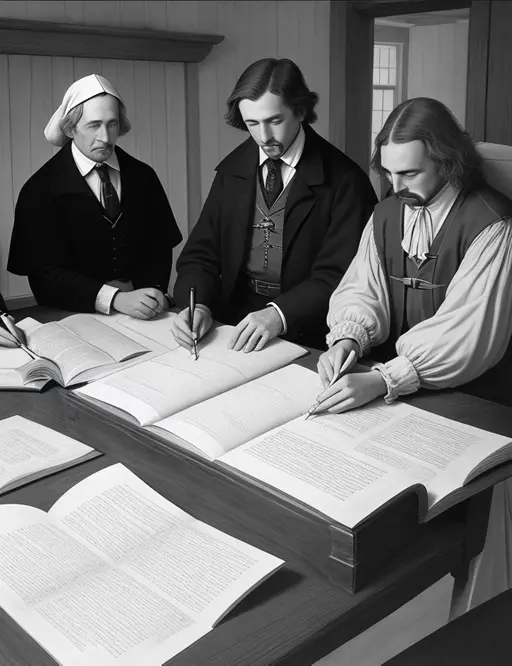Mayflower Compact: Pivotal Agreement for Pilgrim Self-Governance
Signing of the Mayflower Compact by Pilgrims (1620)

Origins and Context
On November 21, 1620, aboard the Mayflower ship, Pilgrims seeking religious freedom signed the Mayflower Compact, a document born out of necessity and a desire for orderly governance in the New World.
Self-Governance Principles
The Mayflower Compact established a framework for self-governance, with signatories pledging to create and abide by laws for the general good of the Plymouth Colony.
Impact on American Founding
This compact laid the foundation for democratic principles in America, influencing later documents such as the U.S. Constitution and contributing to the development of representative government.
Challenges and Resilience
The Pilgrims faced numerous challenges in the early years, but the Mayflower Compact remained a guiding document that reflected their commitment to collective decision-making and communal well-being.
Legacy and Commemoration
The signing of the Mayflower Compact is commemorated as a key moment in early American history, symbolizing the Pilgrims' determination to establish a society based on principles of self-governance and cooperation.



